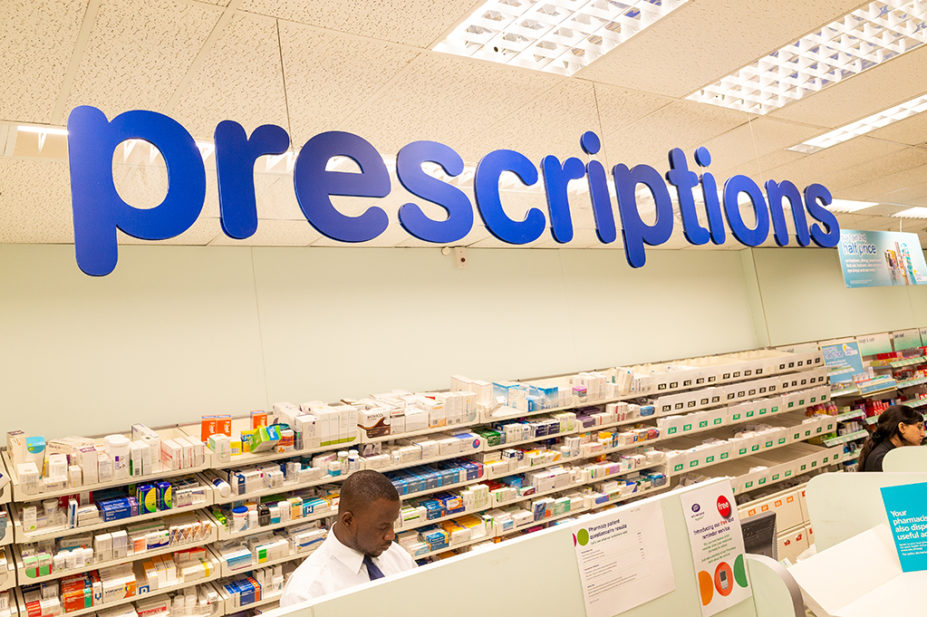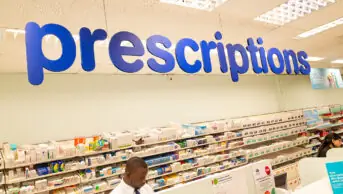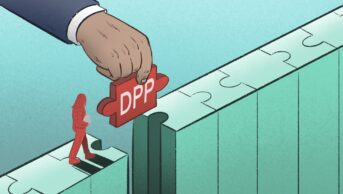
Shutterstock.com
Health Education England (HEE) will fund designated prescribing practitioners (DPPs) as part of a pilot to train pharmacist independent prescribers (IPs) in the south west of England, it has said.
A letter seen by The Pharmaceutical Journal, sent to integrating NHS pharmacy and medicines optimisation programme lead pharmacists, says the pilot to use ‘teach and treat clinics’ aims to “test new forms of support and professional development opportunities for both current prescribing pharmacists and those in training”.
The letter, dated 30 August 2022, called for expressions of interest from integrated care systems (ICSs) in the south west of England to host a clinic “within any organisation with a prescribing mandate and suitable clinical setting, including NHS trusts and foundation trusts, community pharmacies, primary care networks and general practices”.
Independent prescribing trainees taking part in the pilot will be supported by a ‘lead teach and treat pharmacist’ that will act as their DPP, the letter said.
It added that HEE South has agreed regional funding of £56,000 for each DPP working as part of the pilot in 2022/2023.
In their expressions of interest, ICSs were required to commit to continuing the funding for a further 12 months beyond this.
The lead pharmacist will be required to have three years’ post-registration IP practice experience, a therapeutic area of expertise “with a case load of patients/clinics, and a mandate to prescribe within this”, and a “keen interest in education and training”.
In June 2022, pharmacy leaders raised concerns after HEE confirmed to The Pharmaceutical Journal that it will not provide backfill payments to support DPP roles, despite funding thousands of new places on independent prescribing courses over the next year, at £2,000 per place.
Applications opened in August 2022 for the 3,000 IP training places in England, ahead of an announcement by David Webb, chief pharmaceutical officer for England, that pharmacist independent prescribing services will be trialled across England in 2023.
Thorrun Govind, chair of the Royal Pharmaceutical Society’s England Pharmacy Board, said: “It is hugely encouraging to see this innovative trial to increase DPP capacity in the system. There’s an urgent need to increase the number of DPPs to enable more pharmacists to become prescribers, some of whom may go on to become DPPs of the future.
“It’s vital that pharmacists in all roles get protected learning time to engage both in their own development, and to support the education of others. Creating pharmacists who are also leaders, educators and researchers and have the time to undertake activities across these areas is the only truly sustainable way of creating the future supervisory capacity needed to support future workforce development.”
According to the letter from HEE, ICSs were required to submit their expressions of interest for hosting a pilot by 9 September 2022, with successful bids due to be notified on 16 September 2022.
Trainees taking part in the pilot sites “can come from any sector,” the letter continues but adds that there will be “a particular focus on supporting community pharmacists”.
This is part of an ongoing move to train the current pharmacist workforce in independent prescribing ahead of 2026, when IP training will form part of the pharmacy foundation training year — meaning that all pharmacists who successfully pass the registration assessment will become independent prescribers.
In May 2022, the General Pharmaceutical Council removed requirements for pharmacists to have been registered for two years before beginning IP training.
Instead, they need to demonstrate relevant experience in a pharmacy setting and show they can recognise, understand and articulate the skills and attributes required by a prescriber, which will be assessed by the IP course provider.


